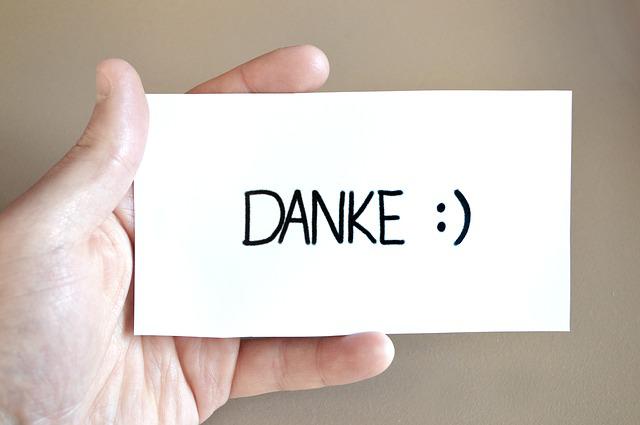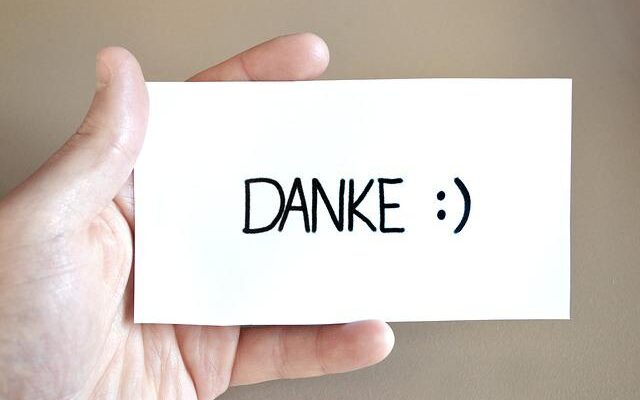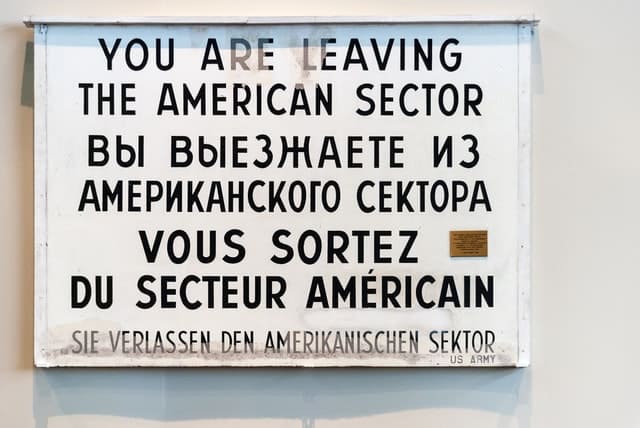Do you feel the time has come to start learning German? You’re no doubt interested in the grammar, the vocabulary, the declensions and so on. However, there are fascinating aspects of learning a language that are not to be missed – for example, the longest word in German. We’ll tell you all about it here. Keep reading!
Where does German come from?
The Germanic languages are a branch of the Indo-European languages. This family includes the majority of languages that are spoken in present-day Europe. But in addition, Persian, various extinct languages and one or two vernacular languages also belong to this group.
Going back to German, if there is one feature that characterizes this language, it’s that it is full of very long words. But why? This is due to the fact that in German, it is possible to create new words by joining multiple nouns. We’re going to take a look at some of the characteristics of this language, as well as some examples of long words in German.
The three genders of German
In the majority of Romance languages, nouns are usually either masculine or feminine. However, German features an additional gender: neuter. The gender of a word is determined grammatically.
(All) nouns are capitalized
You read it right: in the German language, names or nouns are always written with a capital letter. This differentiates it from English, where this rule only applies to proper nouns.
Some words only exist in German
German features several words of its own that do not exist in any other language. The term “fremdschämen” refers to a feeling of second-hand embarrassment caused by the action of another person. It’s the same with the term “Fernweh”, which denotes “a desire to travel to distant places”, or “Heimweh”, which means “nostalgia for one’s homeland”.
The longest word in German
And now we get to the part we want to know. As we’ve mentioned, German is defined by a certain characteristic, namely the length that some of its words can reach. One of the longest is ‘Grundstücksverkehrsgenehmigungszuständigkeitsübertragungsverordnung’. Incredible, right? This term means “regulation on the delegation of authority concerning land conveyance permissions”. It is a neologism originating in bureaucratic language. It’s worth mentioning that these very lengthy words can be divided into parts to make them easier to understand.
As we have seen, this peculiarity of German is owed to the fact that it allows for the construction of compound words by joining various terms together.
Now we will show you which are the longest words in this language and how they are formed.
The ten longest words in German
- Rindfleischetikettierungsüberwachungsaufgabenübertragungsgesetz. This term means: “law on delegation of duties for supervision of cattle marking and beef labeling”. It can be abbreviated to “RkReÜAÜG”. This word makes up part of the title of a national law that was in effect from 2000 to 2013. The term was made famous when it became the longest German word to have appeared in a document by an official body up until that point. It consists of 63 letters. The Association for the German Language even named the noun “word of the year” in 1999.
- Grundstücksverkehrsgenehmigungszuständigkeitsübertragungsverordnung. At present, this is officially the second longest German word. In 2003, another legislative text entered into force, titled “ordinance on the transfer of powers concerning land”. It has a grand total of 67 letters and beat the previous record.
- However, it is worth noting that there is another word that is even longer than the previous two, made up of 80 letters. The word in question is Donaudampfschifffahrtselektrizitätenhauptbetriebswerkbauunterbeamtengesellschaft, which means “association for subordinate officials of the main maintenance building of the Danube steam shipping electrical services”. It is recorded as being the longest word in the world in various editions of the Guinness Book of Records.
- Kraftfahrzeug-Haftpflichtversicherung, consisting of 36 letters. It means “motor vehicle liability insurance”.
- Donau-Dampfschifffahrtsgesellschaft, with 34 letters. This one means “Danube steamship company”.
- Rhein-Main-Donau-Großschifffahrtsweg, with a total of 33 letters. It means “Rhine-Main-Danube major shipping route”.
- Arbeiterunfallversicherungsgesetz, with 33 letters. This means “worker accident insurance act”.
- Bundesausbildungsförderungsgesetz, coming in at 32 letters. This is translated as “Federal Training Assistance Act”.
- Nahrungsmittelunverträglichkeit, with 31 letters. It means “food intolerance”.
- Lebensversicherungsgesellschaft, with 31 letters. It means “life insurance company”.

As you can see, the construction of these words is carried out with multiple nouns, although they are certainly pretty impressive at first glance, as is the case with the longest word in German. If you’re thinking about learning this language, don’t be put off by the apparent difficulty of its words. You simply need to keep in mind that, like everything in life, it will require time and effort on your part. If you follow a consistent study method with clear guidelines and the support of a teacher, you’ll be celebrating your first successes in no time at all. What’s more, learning this language can open up new doors in your professional life. At Blarlo we have the best German translation professionals. You can become one of them too. Don’t wait any longer – start your new project today.






